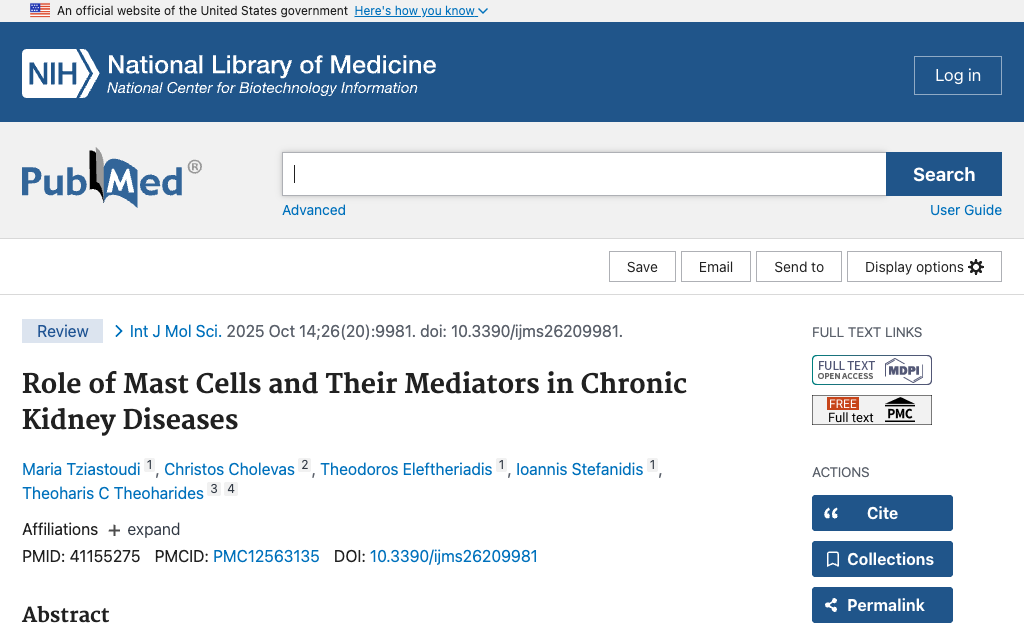Role of Mast Cells and Their Mediators in Chronic Kidney Diseases.
This review explains that mast cells (MCs)—the same immune cells often implicated in allergies and mast cell activation disorders—also appear to play an important role in chronic kidney disease (CKD). In many kidney conditions (diabetic nephropathy, IgA nephropathy, hypertensive nephropathy, lupus nephritis, renal amyloidosis, CKD‑related pruritus and parathyroidism, fibrosis, inflammation, and transplant rejection), kidney tissue shows increased mast cell numbers, and urine levels of mast-cell–derived mediators such as histamine, chymase, tryptase, IL‑33, and MMP‑9 are elevated. Because biopsies are invasive and mast cells sit around blood vessels in the kidney, noninvasive biomarker panels based on these mediators could help with earlier diagnosis, risk stratification, and monitoring of CKD, but this has not yet been well studied clinically. The authors conclude that mast cells contribute to CKD progression and complications and may become future therapeutic targets—raising the possibility that strategies used to stabilize or modulate mast cells in other conditions might eventually be adapted to help prevent or slow kidney damage in susceptible patients, including those with mast-cell–related disorders.
